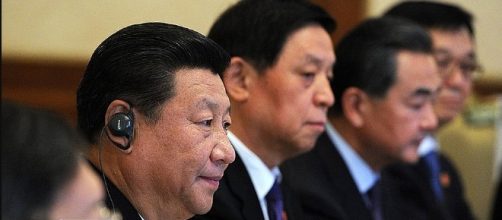Last week Trump had already angered European leaders over their lack of commitment to NATO and publicly demanding that they increase their financial contributions to the military organization. But, according to some analysts, the decision on the Paris Agreement of the president could have a greater impact on the international community than the brush in Brussels.
"The cumulative effect of Trump's policies, crowned with his absurd and tragic decision on the Paris agreement, is the abdication of America's global leadership. Shame! ", Tweeted Susan Rice, former National Security Adviser to former President Barack Obama.
The cumulative effect of Trump policies, capped by his foolish, tragic Paris decision = abdication of America's global leadership. Shame! https://t.co/GsAOxk6gtO
— Susan Rice (@AmbassadorRice) 31 May 2017
Trump's team doesn't agree
"In both ancient and modern times, world orders built by the great powers have come and gone, but they have generally ended in murder, not suicide," Ikenberry, professor of politics and international affairs at Princeton University (USA) wrote in the Foreign Affairs magazine.
"The United States first does not mean 'the United States alone,'" said White House National Security Adviser HR McMaster and National Economic Council director Gary Cohn in the Wall Street Journal.
The government, they insist, "will restore confidence in U.S. leadership while serving the American people."
According to McMaster and Cohn, what Trump will not do is "lead from behind," a pejorative phrase often used to catalog the foreign policy of former President Barack Obama. The truth is that analysts see Trump's lack of commitment to postwar alliances, his attitude toward trade and his unwillingness to collaborate on issues such as climate change to benefit a particular country: China.
A new leader?
"The aim of U.S. international policy was to integrate China into the world order largely defined by the United States, and now it is giving China the role on its own terms," tweeted Richard N. Haass, president of the influential US Foreign Affairs Analysis Center Council on International Relations.
"The irony is that there were people who feared Trump would come to power and make the world a safer place for Russian intrusion," Haass told New York Times.
To which he added: "It may still do, but the fact is that it has made the world a safe place for Chinese influence." And the Asian giant is not letting the opportunity pass.
In January, at the Global Economic Forum in Davos, Switzerland, Chinese President Xi Jinping made a passionate defense of free trade and globalization, two pillars of capitalism attacked by Trump during the election campaign that finally led him to the presidency.


